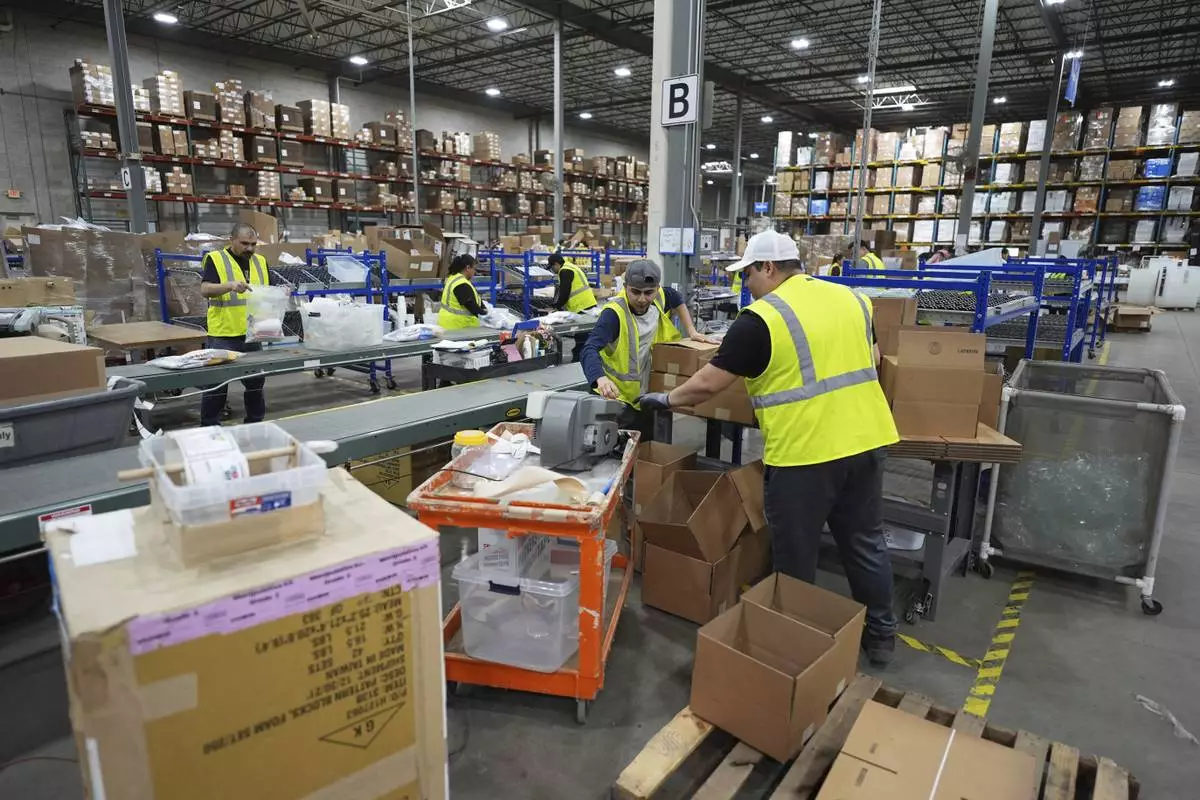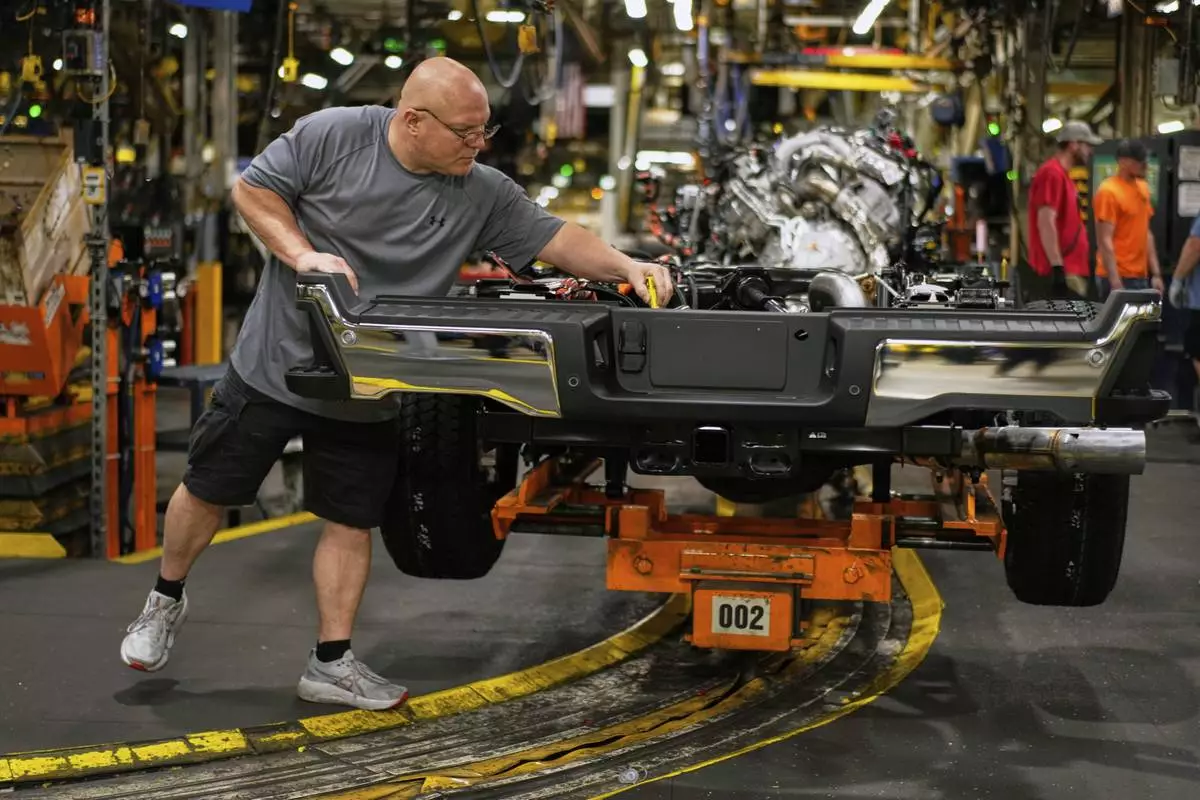The federal agency tasked with protecting workers’ civil rights is classifying all new gender identity-related discrimination cases as its lowest priority, essentially putting them on indefinite hold, according to two agency employees.
The U.S. Equal Employment Opportunity Commission held a meeting on Wednesday clarifying how it would treat new worker complaints of gender-identity discrimination in view of President Donald Trump’s Jan. 20 executive order declaring that the government would recognize only two “immutable” sexes — male and female.
Staff who handle incoming charges, or intakes, were directed to code them as “C,” the lowest categorization in the EEOC's system that is usually reserved for meritless charges, according to the agency employees who attended the Microsoft Teams meeting for intake supervisors, district directors and support staff that was led by the EEOC's national intake coordinator. The employees asked to remain anonymous because they were not authorized to reveal the meeting details.
An EEOC spokesman declined to comment on the meeting, saying that “per federal law, we cannot discuss investigatory practices.”
The decision is the latest step by the EEOC to back away from defending the rights of transgender and nonbinary workers in a major shift in civil rights enforcement under the Trump administration. In February, the EEOC moved to drop seven of its own pending lawsuits alleging discrimination against transgender and nonbinary people.
EEOC Acting Chair Andrea Lucas, a Republican, has said one of her priorities will be implementing Trump’s executive order on gender and “defending the biological and binary reality of sex and related rights.” She had previously ordered that any worker discrimination charge that “implicates” Trump’s executive order on gender should be elevated to headquarters for review.
This latest decision to bury gender identity-related complaints leaves transgender and nonbinary people experiencing discrimination at work with limited recourse. U.S. workers must file discrimination complaints through the EEOC in most cases before they can seek other legal avenues.
Giving gender identity-related cases the lowest priority essentially pre-determines that they are meritless, said Chai Feldblum, who was an EEOC commissioner from 2010-2019.
“If they say they are bringing it to a central location to give them due consideration, they at least have the facade of doing something,” Feldblum said of Lucas’ previous directive on gender identity cases. “If they are sweeping them out the door as “C” charges, they are not doing their job.”
The EEOC has said that it will still issue “right to sue” notices in gender-identity related cases upon request, meaning workers can decide to pursue a lawsuit on their own. The agency will also honor requests for mediation, according to the employees who attended Wednesday's meeting. But if mediation fails, the EEOC will take no further action on the case, the employees said.
The EEOC’s new approach to gender-identity related discrimination has raised a debate over whether the agency is acting in violation of the Supreme Court’s 2020 ruling in Bostock v. Clayton County, a landmark case that established that Title VII of the Civil Rights Act prohibits workplace discrimination based on gender identity.
Civil rights activists have accused the EEOC of illegally defying the Supreme Court and abdicating its duty to enforce anti-discrimination laws by abandoning gender-identity related lawsuits. Lucas has previously told The AP that the EEOC has a duty to comply with Trump’s executive orders but she has not directly addressed the criticism that the agency’s handling of gender-identity cases are in tension with the Supreme Court.
The EEOC in fiscal year 2024 received more than 3,000 charges alleging discrimination based on sexual orientation or gender identity, and 3,000-plus in 2023, according to the agency’s website.
Associated Press business reporter Alexandra Olson contributed to this report.

FILE - President Donald Trump speaks to reporters as he signs executive orders in the White House, Feb. 4, 2025, in Washington. (AP Photo/Evan Vucci, File)
WASHINGTON (AP) —
American employers added a better-than-expected 177,000 jobs in April as the job market showed resilience in the face of President Donald Trump's trade wars.
Hiring was down slightly from a revised 185,000 in March and came in above economists’ expectations for a modest 135,000. The unemployment rate remained at a low 4.2%, the Labor Department reported Friday.
President Donald Trump’s aggressive and unpredictable policies – including massive import taxes – have clouded the outlook for the economy and the job market and raised fears that the American economy is headed toward recession.
Transportation and warehousing companies added 29,000 jobs last month, suggesting that companies have been stocking up before essential, imported goods are hit with a wave of new tariffs, driving prices higher. Healthcare companies added nearly 51,000 jobs and bars, restaurants almost 17,000 and construction firms 11,000. Factories lost 1,000 jobs.
Labor Department revisions shaved 58,000 jobs from February and March payrolls.
Average hourly earnings ticked up 0.2% from March and 3.8% from a year ago, nearing the 3.5% that economists view as consistent with the 2% inflation the Federal Reserve wants to see.
The report showed that 518,000 people entered the labor force, and the percentage of those working or looking for work ticked up slightly.
“We are not seeing right now any really adverse effects on the employment market,’’ Boston College economist Brian Bethune said before the report came out.
Yet many economists fear that the U.S. job market will deteriorate if economic growth takes a hit from trade wars.
Trump’s massive taxes on imports to the U.S. are likely to raise costs for Americans and American businesses that depend on supplies from overseas. They also threaten to slow economic growth. His immigration crackdown threatens to make it more difficult for hotels, restaurants and construction firms to fill job openings. By purging federal workers and cancelling federal contracts, Elon Musk’s Department of Government Efficiency risks wiping out jobs inside the government and out.
“Looking ahead, we expect the steep tariff increases and the surge in uncertainty and financial market volatility will result in a more pronounced labor market downshift than previously anticipated,” Lydia Boussour, senior economist at the accounting and consulting giant EY, wrote this week. “Large cuts to the federal workforce and the cancellations of many government contracts will also be a drag on payroll growth in coming months.’’
A slowdown in immigration “will weigh on labor supply dynamics, further constraining job growth. We foresee the unemployment rate rising toward 5% in 2025.’’
Trump’s policies have shaken financial markets and frightened consumers. The Conference Board, a business group, reported Tuesday that Americans’ confidence in the economy fell for the fifth straight month to the lowest level since the onset of the COVID-19 pandemic.
American workers have at least one thing going for them. Despite the uncertainty about fallout from Trump’s policies, many employers don’t want to risk letting employees go – not after seeing how hard it was to bring people back from the massive but short-lived layoffs of the 2020 COVID-19 recession.
“They laid millions of these people off, and they had a hell of a time getting them back to work,’’ Boston College’s Bethune said. "So for now, the unemployment rate and the number of people filing claims for jobless benefits every week remain low by historical standards.
Bethune does not expect Musk’s cuts to the federal workforce to show up much in the April jobs numbers. For one thing, job cuts orders by the billionaire’s DOGE are still being challenged in court. For another, some of those leaving federal agencies were forced into early retirement – and don’t show up in the Labor Department’s count of the unemployed.

FILE - Employees of Learning Resources, an educational toy company, work at a warehouse in Vernon Hills, Ill., Friday, April 11, 2025. (AP Photo/Nam Y. Huh, File)

FILE - A worker drives a forklift past shelves of Canadian spruce planks, at Shell Lumber and Hardware, Tuesday, April 8, 2025, in Miami. (AP Photo/Rebecca Blackwell, File)

FILE - A waiter carries drinks, Friday, April 18, 2025, in Miami Beach, Fla. (AP Photo/Marta Lavandier, File)

FILE - Delivery workers carry boxes outside a grocery store in the Chinatown neighborhood, Wednesday, April 9, 2025, in New York. (AP Photo/Yuki Iwamura, File)

FILE - Vehicle assembly technician Kevin Zepernick works on a 2025 Ford Expedition during a media tour to launch the 2025 Ford Expedition at the Ford Motor Company Kentucky Truck Plant, Wednesday, April 30, 2025, in Louisville, Ky. (AP Photo/Carolyn Kaster, File)

























































